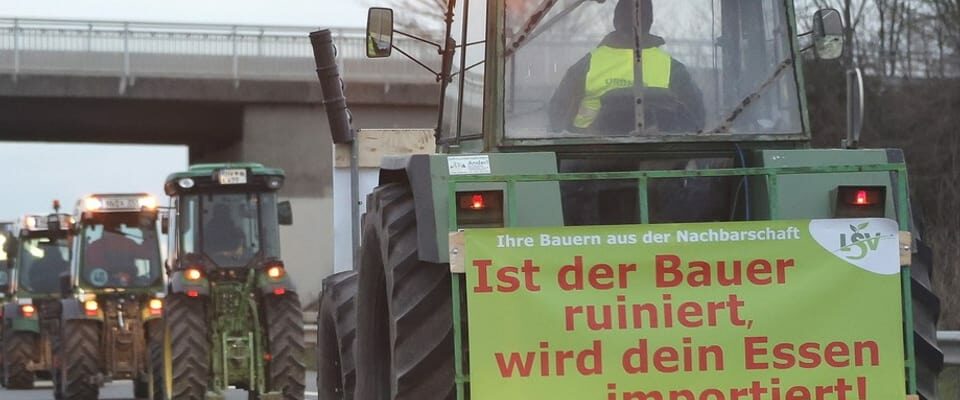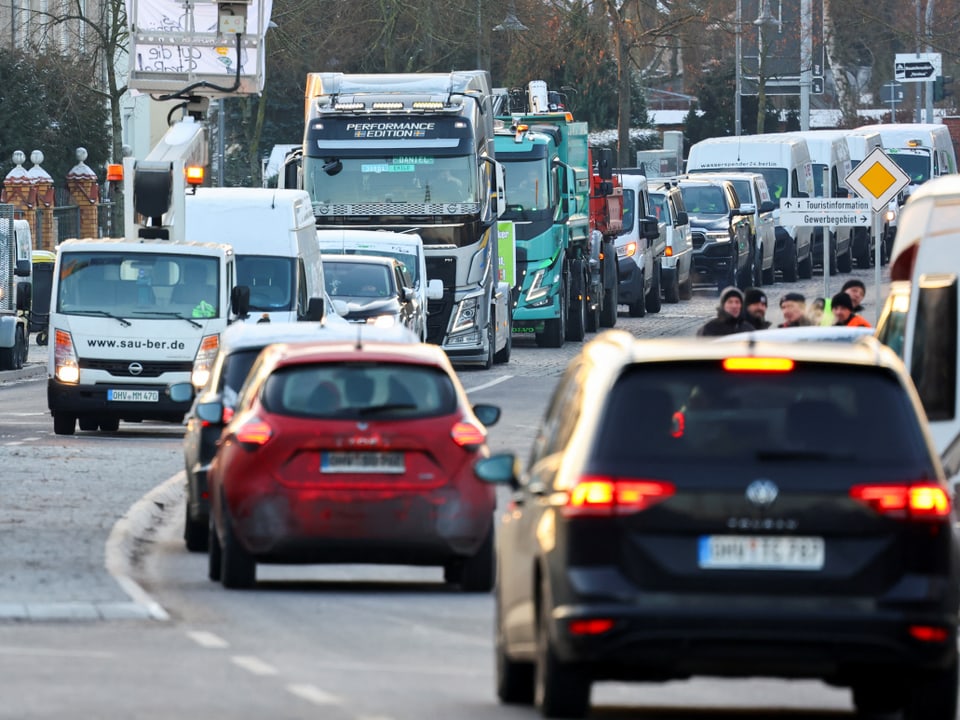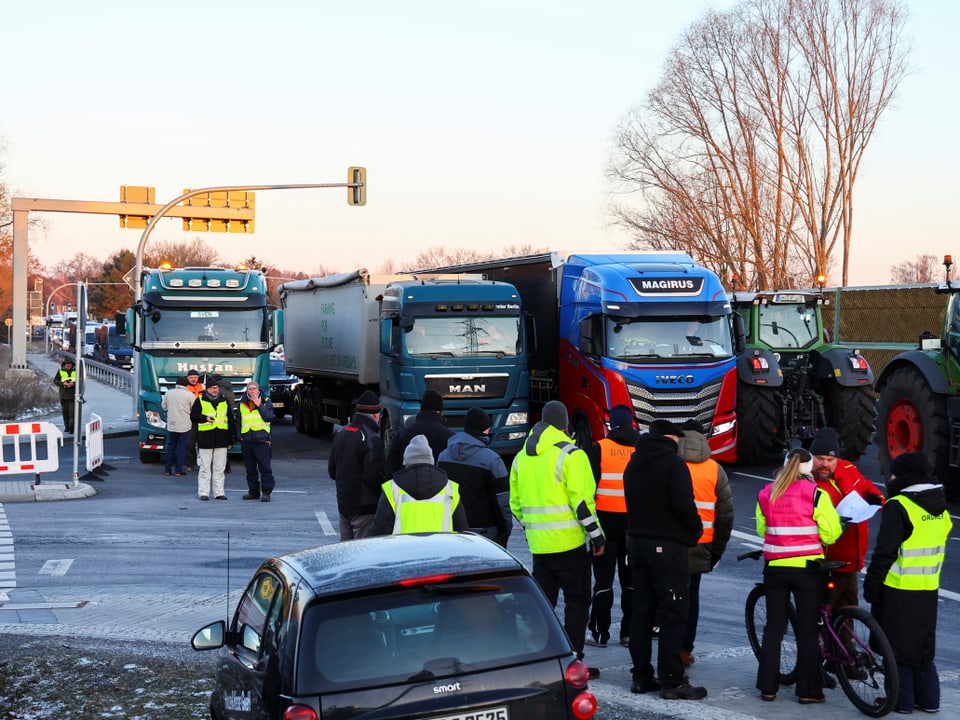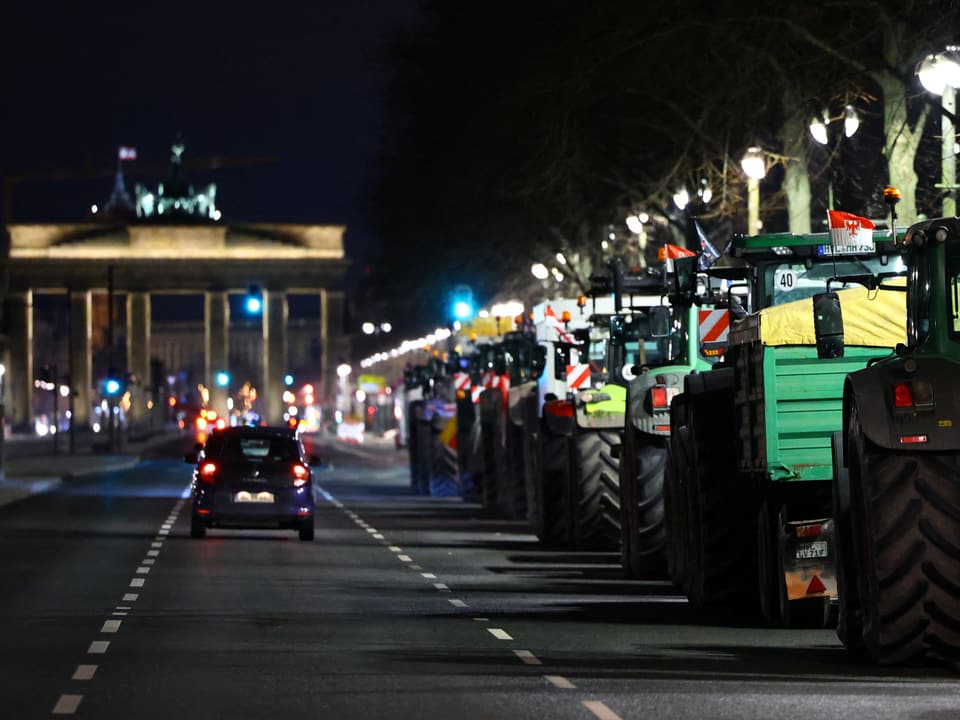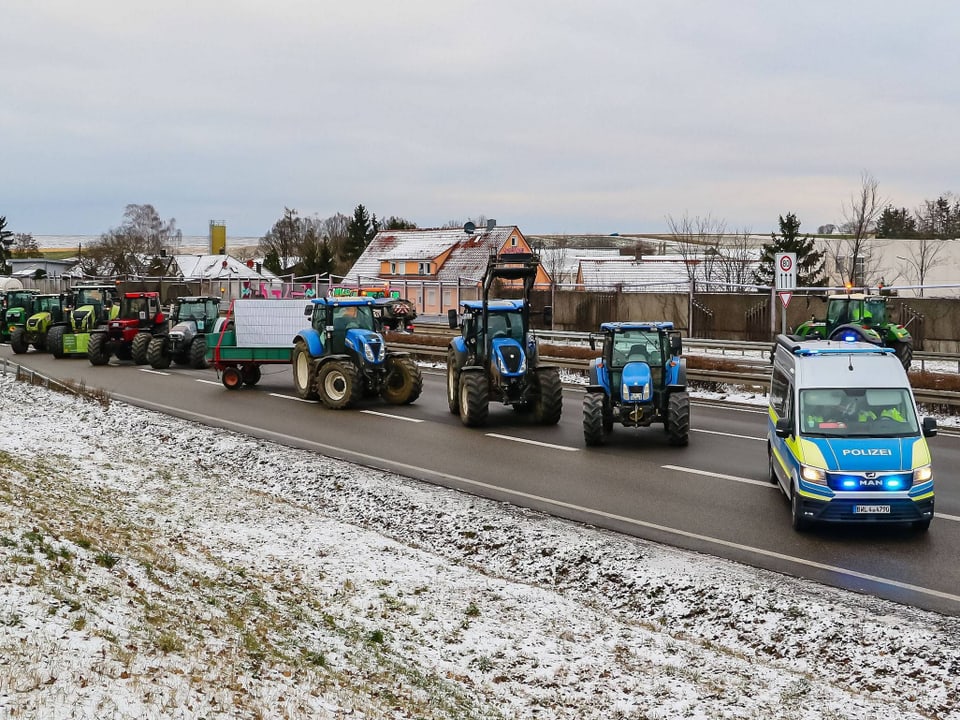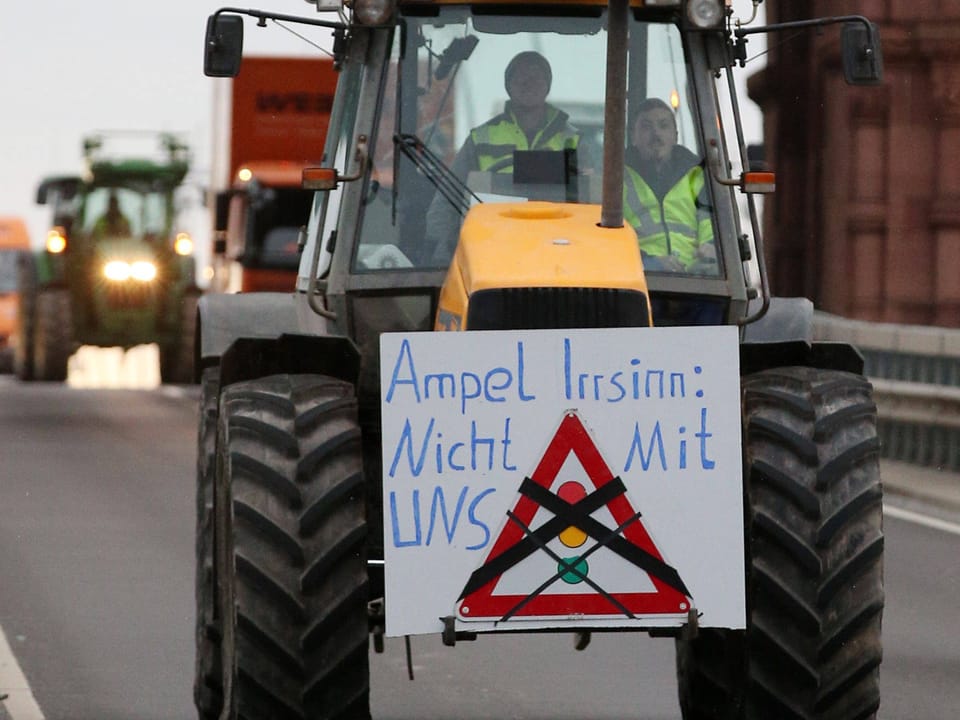Contents
German farmers are taking to the barricades across the country. Severe traffic disruptions are to be expected.
What is it about? The German federal government announced austerity measures in December 2023. Farmers are also affected by this. They have been demonstrating against the traffic light coalition’s agricultural policy for weeks. The protests are expanding today: the farmers’ association has called for a week of action. This is scheduled to culminate on January 15th with a demonstration in Berlin.
To what extent is the agricultural sector affected? Among other things, it was decided that certain subsidies for the agricultural sector would be canceled – for example the tax exemption for agricultural vehicles and machinery or the subsidies for agricultural diesel.
German farmers are protesting against planned austerity measures
What to expect from the protest week? Drivers, school students and bus passengers have to prepare for traffic chaos and disruptions. Tractors are supposed to block roads, including federal roads. One focus could be highway entrances.
Why do the protests continue despite mitigation? The traffic light government has already withdrawn some of the planned cuts. The exemption from motor vehicle tax for the agricultural industry should continue to apply. The discount on agricultural diesel should only be phased out gradually. But farmers want the savings plans to be completely withdrawn. “It’s also about a general economic concern that affects many industries,” adds Claudia Kade. She is head of the politics department at the daily newspaper “Die Welt”.
Will the federal government respond to the demands? Claudia Kade does not expect the federal government to take any further steps towards farmers. The protest has become very intensified in the last few days. For example, Economics Minister Robert Habeck was prevented from returning from his holiday island. “This aggressiveness will not lead the federal government to show further accommodation, but rather toughness.” In addition, farmers are not the only group affected by the austerity plans. Admissions could lead to demands from other groups.
Who is also protesting? Logisticians and freight forwarders have also joined the protests. They are affected by the plans to increase the truck toll. Restaurant owners are also fighting back because the VAT reduction on restaurant visits is to be lifted. Security experts warn that extremists could also infiltrate the protests.
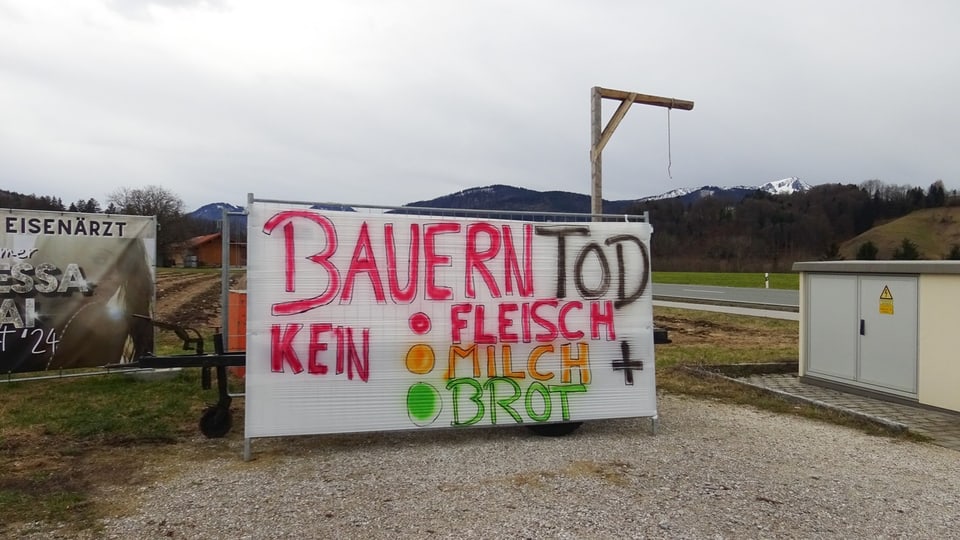
Legend:
In Berlin on Sunday, demonstrators carried a gallows. This was dismantled by the stewards and organizers of the event. “There are also warnings about right-wing extremists,” says journalist Kade.
Keystone/DPA NEWS5/Hallweger (05.01.2024)
Are the demands of the agricultural industry justified? Critical voices say that farmers earn well and receive enough subsidies, including from the EU. In fact, the economic results of agricultural businesses have been good in recent years. According to Kade, there is talk of an annual average income of over 100,000 euros. Of course, it should be noted that this industry is about supplying the population with food. And yet: “The farmers are complaining at a very high level.”
